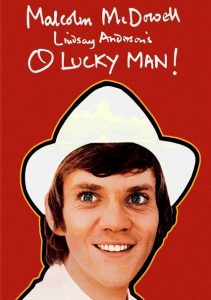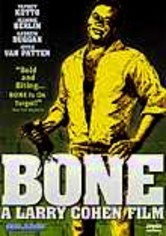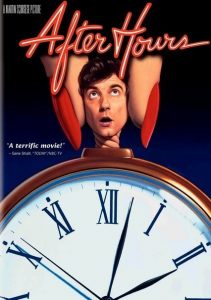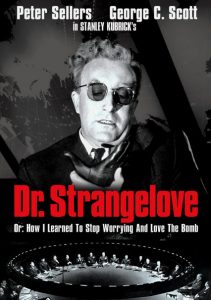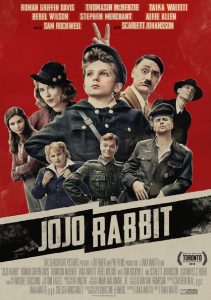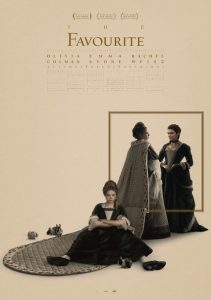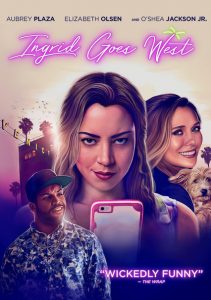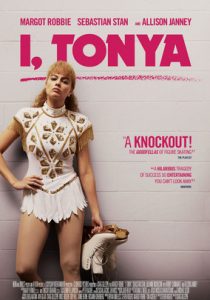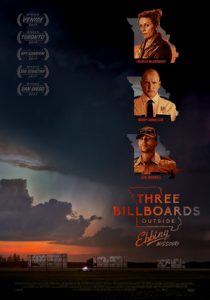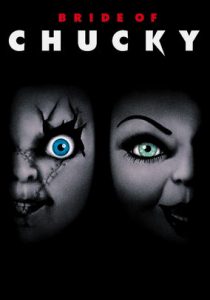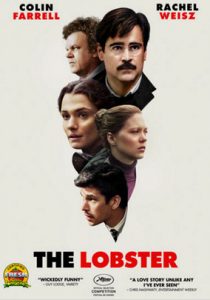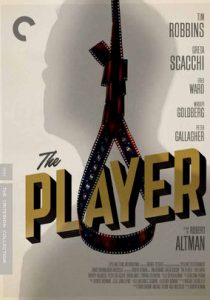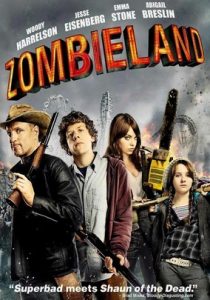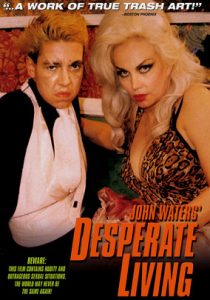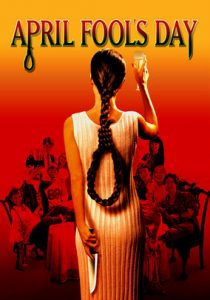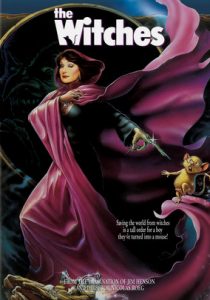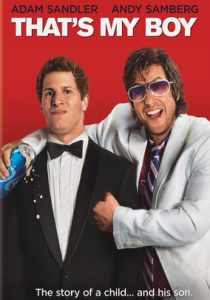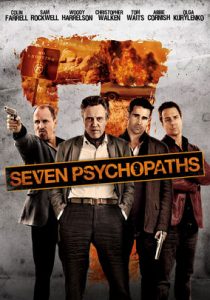O Lucky Man! -1973
Director Lindsay Anderson
Starring Malcolm McDowell, Ralph Richardson, Helen Mirren
Scott’s Review #1,174
Reviewed September 1, 2021
Grade: A-
O Lucky Man! (1973) is a satirical black comedy that mixes musical songs with a message of capitalism by the driven protagonist. Like a great fine wine, the film has aged well and is still relevant decades later.
The film is a slow build but by the end of the lengthy running time of nearly three hours, I was enamored and hummed the title song repeatedly.
I’m still humming it as I write this review.
Suggested is to watch O Lucky Man! in two or three segments for full appreciation. One sitting would be incredibly tough since some of the events require some level of reflection and thought.
An ambitious young British man, Mick Travis (Malcolm McDowell) is determined to be successful at all costs. Debuting as a coffee salesman, Mick is quickly promoted within his company. Events take a series of bizarre turns when Mick is abducted by a military agency.
Later, he becomes smitten with the gorgeous Patricia (Helen Mirren) and winds up working for her father, sinister executive Sir James Burgess (Ralph Richardson). As Mick’s tale continues, his experiences get progressively stranger.
The clever aspect is that just when you think Mick’s life is dour and drab he rebounds more successful than ever. Hence the title of the film. So, there is an element of adventure and romance amid the capitalist plot.
Lindsay Anderson, who directed O Lucky Man! re-casts McDowell again in the same role he first played as a disaffected public schoolboy in his first film performance in Anderson’s film If… (1968).
I did not realize this at the time I watched O Lucky Man! and I think this knowledge would have made me catch on to the events and the subtexture even more.
Now, I need to rewatch If…
I did however ruminate constantly on McDowell’s other iconic role in A Clockwork Orange (1971) as Alex. The characters are quite similar save for Alex being a juvenile delinquent instead of a rising corporate guy like Mick is.
This is in large part due to McDowell’s looks and acting style. His trademark sneer and bright blue eyes make him mesmerizing in both roles.
I even spotted an actor who played one of the infamous droogs!
A plus to the film is that several actors appear in multiple roles, some difficult to distinguish. Part of the fun is trying to figure out who’s who.
There isn’t a whole lot of chemistry between McDowell and Mirren but it’s interesting the shifting characteristics of the characters. And Patricia is fascinating. When she inquires why people work so hard for things instead of just taking them we realize that she places no value in things because she’s never had to work for them. She’s a rich, daddy’s girl.
There are reasons not to like her but I still did. When she winds up in a homeless lot it’s shocking. And I also loved the character of Mick and his epic journey. He is imprisoned and then reformed in a humanistic way just like Alex was in A Clockwork Orange.
But the best part of O Lucky Man! is the music. Anderson takes periodic breaks from the drama to simply treat his audience to a musical number all performed by Alan Price.
It’s comforting to sit back and enjoy the unforgettable tunes that pepper the film. One could argue that the songs almost usurp the main action but I found them, great companions, to the other.
As if there was any doubt, the soundtrack was widely lauded and was a huge financial success.
A surreal effort, sometimes happy or tragic but always insightful and oftentimes delightful, McDowell, Price, and Anderson are at the top of their respective games.
O Lucky Man! (1973) is a terrific watch brimming with good juices if one just has the patience to let events marinate.
